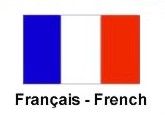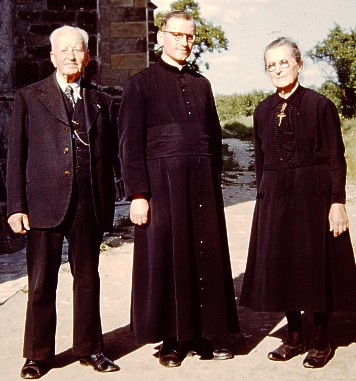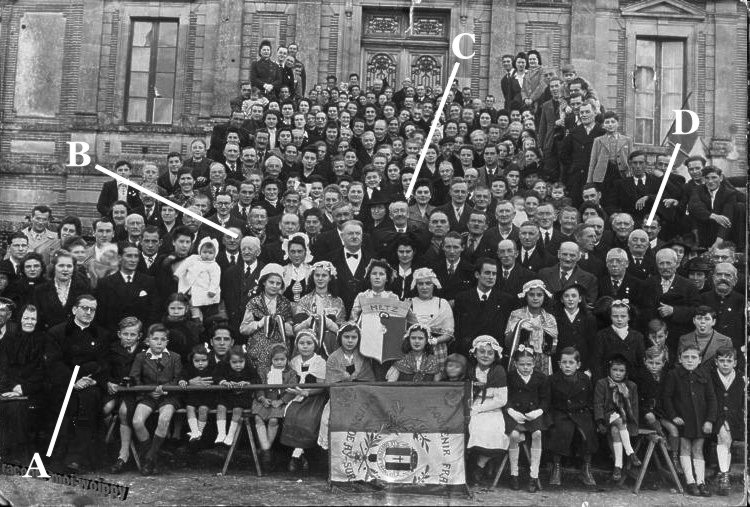Louis Holveck
Catholic priest George "Louis" Holveck was one of the three Fèves committee members responsible for handling the details on the
French end of the Morganville-Fèves sister-city arrangement. The others were village mayor Auguste Berne and
schoolmaster Henri Torlotting.
Father Holveck was born in 1909 to Jean Baptiste Eloi Holveck and his wife Marie Josephine "Rose" (Louyot) Holveck. He was the
youngest in a family of 5 boys and 1 girl. His father was a teacher. He was already the village priest when the order came to
evict most of the village’s citizens in the fall of 1940.
The events leading up to the expulsion were set in motion by the invasion of France ordered by Germany’s
Chancellor Adolf Hitler on May 10, 1940.
Priest Louis Holveck, middle, with his parents
On June 17 - a little more than a month later - French Prime Minister Philippe Pétain ordered all French soldiers to lay down
their arms. Metz and the surrounding areas fell under German control the following day. On June 22, most of France was divided
into two zones - a northern militarized area under control of the German army, and a southern zone under the control of a French
government required to do Germany's bidding. The latter was created by Germany so it would retain control, but need far less
German manpower than direct governance would require.
The Alsace and Lorraine regions of France suffered neither of these fates. On July 24, they were instead merely annexed to
Germany as part of the Fatherland. Expulsion of those citizens deemed to not be loyal to Germany began the following fall.
Many of those from Fèves, including Father Holveck, were sent to the area around Lavaur in the Tarn Department in southwestern
France. Holveck moved with his expelled parishioners.
This photo was taken in front of the Palace of Justice in Lavaur in the spring of 1944. (A) is Louis Holveck, (B) is his father, (C) may be Fèves mayor Auguste Berne and (D) is Fèves citizen Mr. Rosati. Many of the younger women are wearing the traditional Lorraine head covering. This building later became the mayor's office for Lavaur.
Holveck returned to Fèves when the parishioners who had been expelled were allowed to return after the area was liberated.
Some of those who had been expelled chose to remain in southern France and build a new life there.
Holveck left Fèves in 1950 or 1951 for a new posting in Novéant-sur-Moselle. The village, about 15 miles southwest of Fèves on
the Moselle River, was where his parents were living. Holveck died in Novéant in 1980 and it is believed that is where he is buried.



